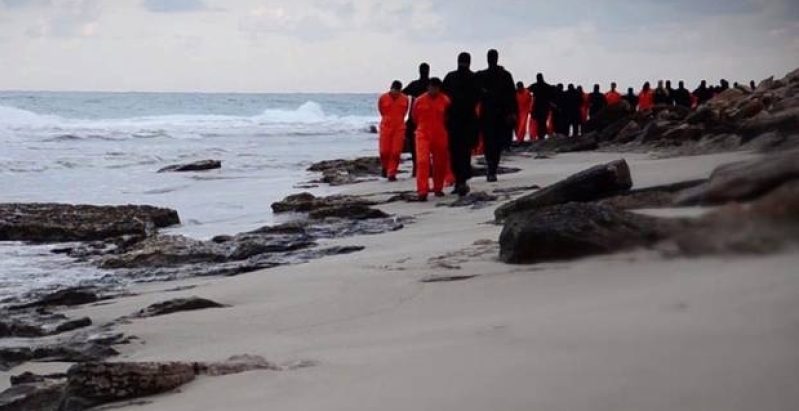
The White House has issued a statement that condemned the latest brutal act carried out by ISIS. However, some media outlets reported that some information was left out regarding the victims.
According to Charlie Spiering of Breitbart, the White House, through press secretary Josh Earnest, released a statement over the weekend that condemned the beheading of 21 Egyptian Coptic Christians on a beach in Libya. However, Spiering noted that the victims were described as "innocents" and "victims," but no mention of their Christian faith was present.
"We offer our condolences to the families of the victims and our support to the Egyptian government and people as they grieve for their fellow citizens," the White House wrote. "ISIL's barbarity knows no bounds. It is unconstrained by faith, sect, or ethnicity."
The White House added that the "heinous act" required a "political resolution" in Libya. It also urged both the Libyan people and the international community to unite against ISIS.
However, Spiering reported that the ISIS video had a direct message aimed at Christians, citing that one of its captions mentioned that the victims were "people of the cross, followers of the hostile Egyptian church."
"Safety for you crusaders is something you can only wish for," an ISIS militant said in the video.
However, Eric Schmitt of the New York Times contended that the Obama administration has been trying to counter the propaganda machine of ISIS, which has successfully attracted new recruits from every corner of the globe. The Center for Strategic Counterterrorism Communications, an agency within the State Department, is doing its best to counter messages from ISIS.
"We're getting beaten on volume, so the only way to compete is by aggregating, curating and amplifying existing content," Richard A. Stengel, the undersecretary of state for public diplomacy and public affairs, said to the New York Times via telephone.
Schmitt reported that the federal agency's purpose was to coordinate "counter-messaging against extremist groups, mainly aligned with al-Qaida." Created by President Barack Obama in 2011, it also relies on "digital outreach specialists" who have fluency in Arabic, Urdu, Punjabi and Somali to "counter terrorist propaganda and misinformation about the United States on the Internet in real time."
"The new campaign against the Islamic State would carry out strategies now routinely employed by many businesses and individuals to elevate their digital footprints, including resharing news items or opinion articles on Twitter, forwarding hypertext links and taking other steps to optimize content online," Stengel told the New York Times.
According to the New York Times, Stengel mentioned that his agency's efforts would use more than 350 State Department Twitter accounts in its messaging operations. The efforts would work alongside similar accounts operated by the Pentagon, Department of Homeland Security, embassies, consulates, media hubs, bureaus and individuals.
"These guys aren't BuzzFeed; they're not invincible in social media," Stengel said, adding that such efforts were recently used in condemning the Charlie Hebdo attacks in Paris.
The New York Times reported that the online messages made by that agency "aimed to create a competing narrative that strikes an emotional chord with potential militants weighing whether to join a violent extremist group."






